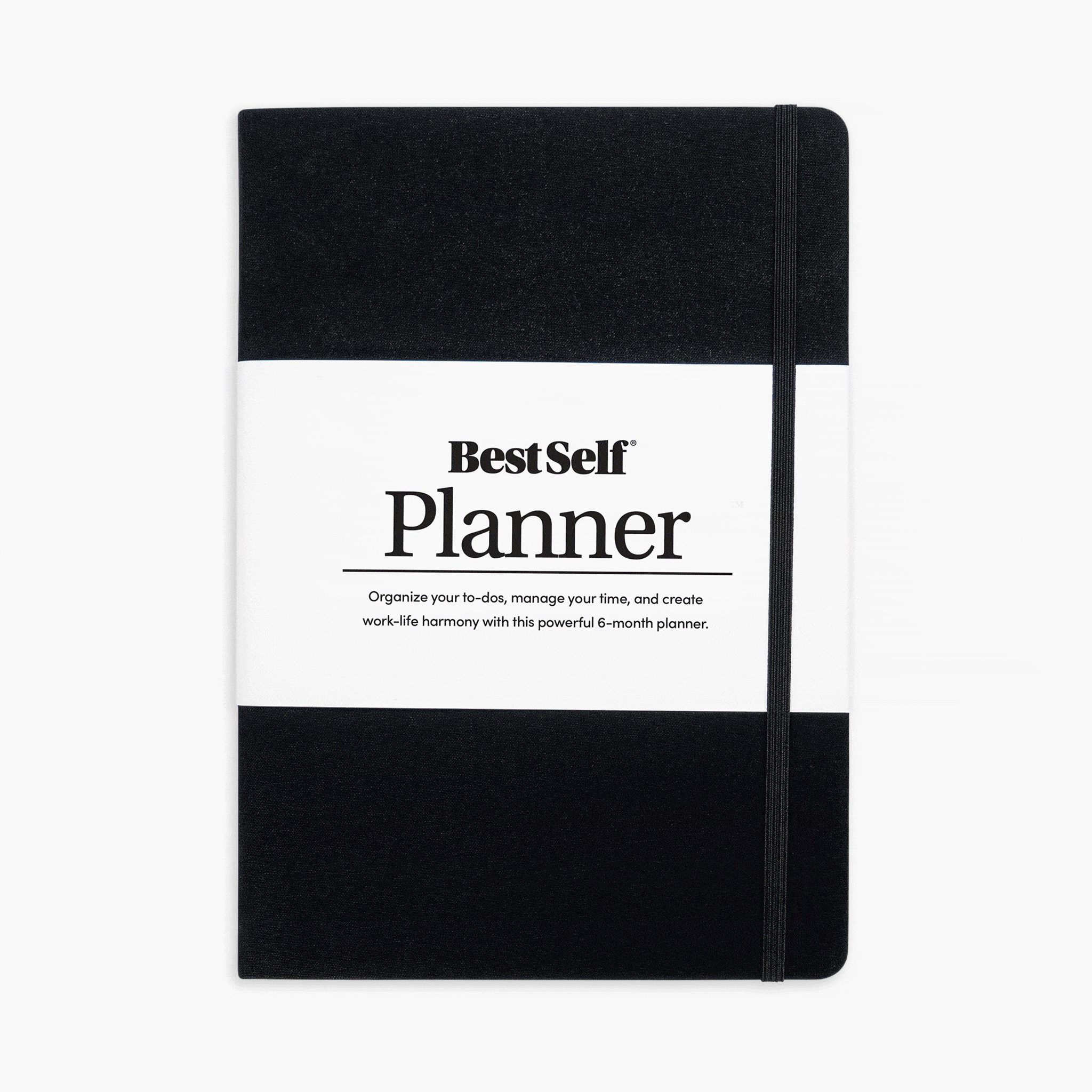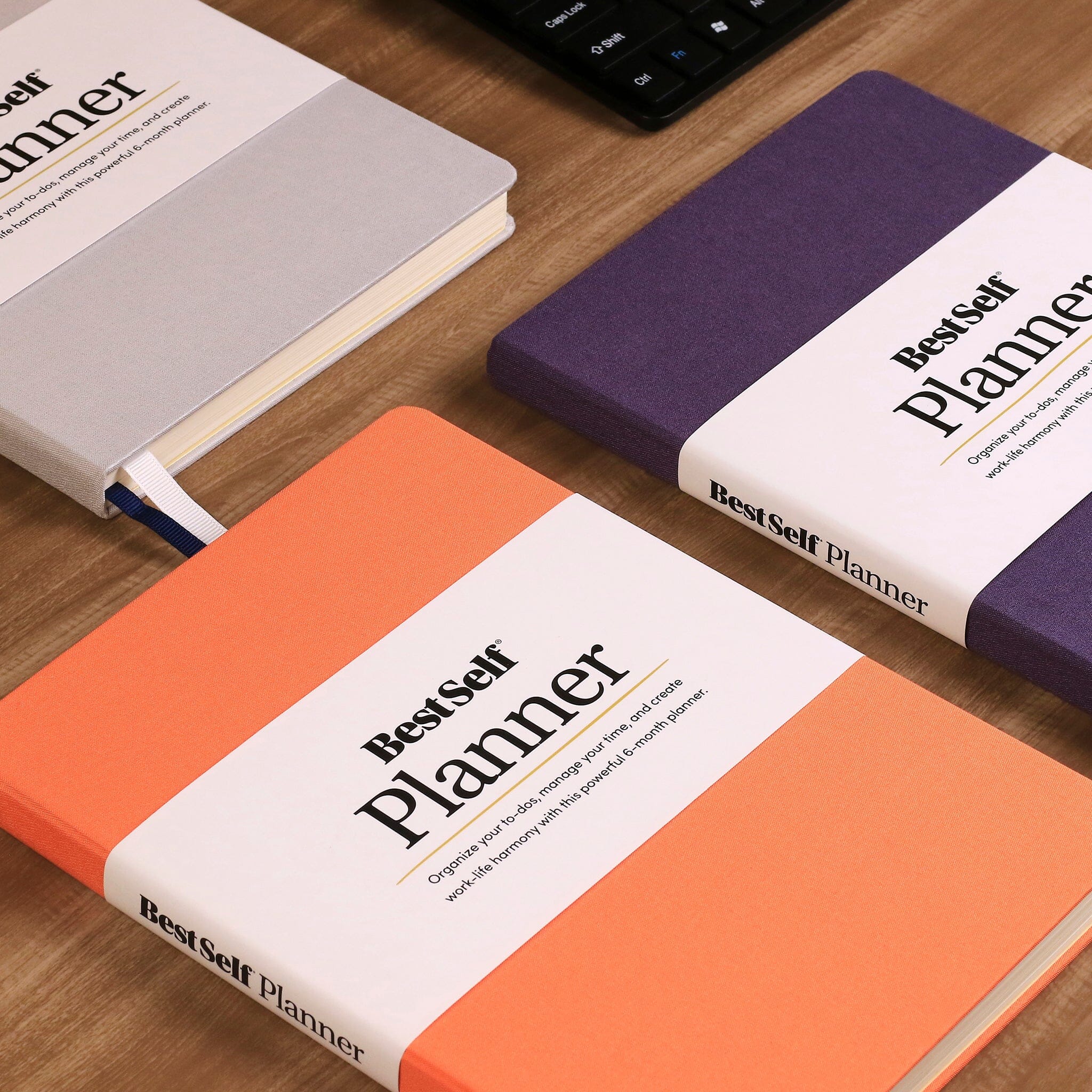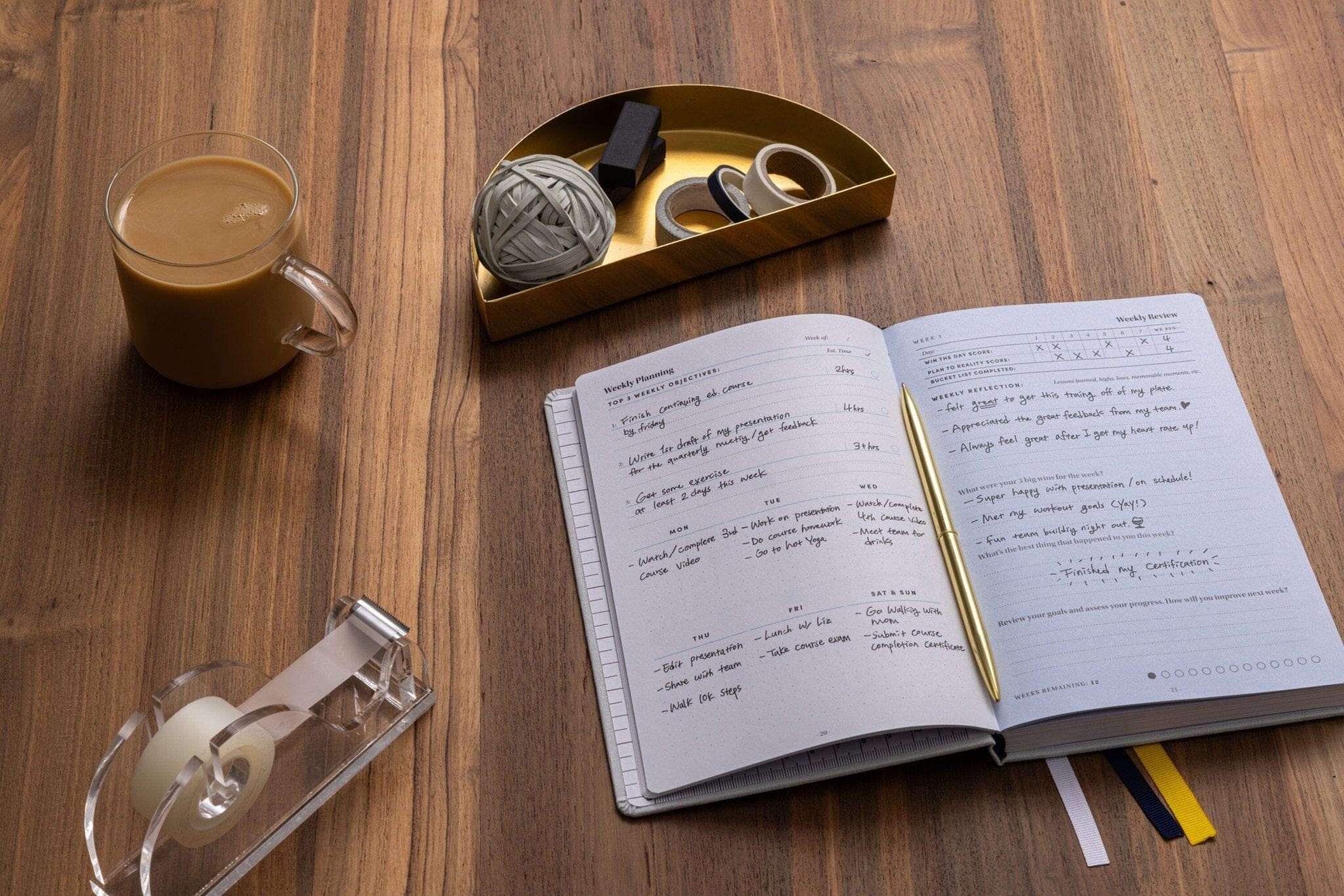Cathryn (00:00):
So we all have strengths and weaknesses but did you know that every strength has a weakness? Let me explain. So, say a strength of yours is that you're decisive. When faced with a choice, you have no problem coming up with a decision. That's a strength but it does have a weakness - your decisiveness can make you impulsive. And in relationships, the strengths that attracted you to your partner do come with the corresponding weakness. So we see the strength as the light and we see the weakness as the shadow. It's two sides of the same coin. And when you become aware of you and your partner's lights, and shadows, that could help clear up so many misunderstandings because often we're first attracted to the light that we see. And then the shadow appears as we get to know them more and it can be really annoying, especially if we don't know where it's coming from. So this week, we're going to be focusing on exploring the light and the shadow in all of us.
Cathryn (00:56):
Okay, so Rachel, I am fascinated by this subject because it's so interesting how the things that attracted us to our partners often become the thing that irritates us the most. So how do we navigate this challenge so it doesn't create friction? And just tell us more about why this phenomenon happens?
Rachel (01:21):
So, psychologically, we are often attracted to folks who fill gaps for us. So for example, I am someone who feels all of my emotions very deeply and the one emotion that I really struggle to feel and embody and like hold on to and play with, is anger and frustration. And so I found in my husband, someone who is actually quite quick to anger, not towards me but in general. Like, frustrated when someone cuts him off where I'd be like "Oh, whatever. Their mom may have just called them with something bad" you know. And we fought, we look for "opposite", right? It's this old adage of "opposites attract" and that's not true in all of the ways. It is true in the way that we look for things to compliment ourselves. We don't want to be with someone who is exactly us. It's very boring and very creepy. It's not fun and that means that that person is going to come at things, or have an attitude towards things, or see things differently than you. And reminding yourself that that is something that you can appreciate and that you liked in them at the beginning, is often helpful when you're 10 years in and you're like "Are you still yelling at the car that cut you off?"
Cathryn (02:49):
That's funny. I think I have the same thing with my wife, it's like, we think it's a good thing because like "Oh, we don't get stressed about the same things because we have differences." And one of the ways when we were buying our house, I tend to like, I hate paperwork in general, I'm not good at it and I generally assume everyone's gonna be nice and do the thing that they said they were going to do. And her dad's a lawyer so her whole life, she's, like, reading the fine print on everything. And so her whole view going into it is "Who was trying to screw us? Everyone." And so together, I'm like "You know, everyone's gonna do what they say and assume positive intent. Who's going to screw us?" And then together we figure out something in the middle.
Rachel (03:34):
Exactly, exactly. And it's just reminding yourself that those differences are not inherently bad or inherently good. They are. They just are. And sometimes that feels really yummy and extra helpful and other times that feels like a hurdle to climb over. Either way though, we don't need to meet the person with criticism or contempt. We can meet with "I didn't like how that was handled" rather than like "You always are such a, you know, blah blah blah..."
Cathryn (04:06):
Yeah. And I think one thing is, you know, as we get more comfortable in a relationship, the thing that we were attracted to, now that it's become more comfortable and less novel, the thing starts to irritate us more. And then, you know, we'll be like "Oh well, let's start to change this person to be more of, you know, what I'm like." But then if they do that, they're not actually the same person that you fell for because the thing that you were attracted to, they don't have anymore. And I think we have to understand that it's like a coin where you can't just take the good feature. It's the same feature, it's just the two sides of the same coin. And so you can't take the good and leave the more negative aspect of the same thing.
New Speaker (04:50):
So one of the things that I say about my wife is that she's extra so like everything's more extra than I feel that it needs to be. And so in a lot of ways, that's a great thing and then sometimes in some ways I'm like "How did this go from like zero to a hundred?" and I got whiplash. And so when I would get irritated by it, one of the things that helped me was the reminder of "Oh, here's all the ways that she's extra in the way that I like." Does that make sense? And that gives you more patience for it and more understanding of like "Oh, this is actually a full human and this is just the same thing that I like, expressed in a different way."
Rachel (05:32):
100%. And also, you know, there's something to be said for writing down moments where that thing actually served you or brought you joy. You know, the thing that really just bugs you sometimes, how has that actually served your relationship or your life? And keep a note in your phone, you know, to remind you of why you like this quality sometimes? And again, sometimes, we're all human, in the same way that my husband is more quick to anger, you know, not being able to or struggling and learning how to feel and embody anger is also can be frustrating for other people to be around. You know, it's like "Why isn't she more upset? Why isn't- Why aren't you angry?" And he has helped me bring that out in myself, you know, so it's...we can look at these as strengths or weaknesses but really, I like to see them as like areas of opportunity in the relationship to grow together. And that's it. Like, it doesn't have to be a personality flaw or something that's so wrong with one of us.
Cathryn (06:44):
Yeah, I totally agree. I think there's a lot of plusses to it and until we actually reflect and understand it, we don't see it but that's part of what this exercise is all about. So what are the benefits of couples being different from each other and how can you leverage and work with those differences to create a stronger relationship?
Rachel (07:06):
Look at the Venn Diagram again. So earlier we were talking about really focusing on where the circles overlap in the Venn diagram rather than where they're different. And with this, I would actually encourage to look at all of it with a little bit of a different lens. So the overlaps in this case are usually the things that you're not getting annoyed with and then the things on the edges are probably the things that you are. And so asking each other and sitting down and saying "How can this thing serve us and how is it currently not?" Like, how does it show up for us in a way that is not great where we don't like it individually and together, and then also how does this show up in a positive way and in a helpful way. And again, making it more about the impact on the relationship and on life, not a personal attack of two people that are sitting, trying to be perfect for each other. Like, there's no such thing, there's no such thing.
Cathryn (08:08):
Yeah, for sure. And I think just taking the time to do that, you'll understand. If you go out looking for the perfect thing, you'll be so bored if they're exactly like you and you'll realize it actually doesn't exist. And you'll actually find out ways that they're like you and you can be annoying.
Rachel (08:26):
I would fight way more with myself than I do with the opposite of myself. If I had to deal with me every day, like talking back to me, I would be, it'd be a nightmare. None of us want to do that. And we got to remind ourselves of that sometimes when we're focused on the differences in a negative way.
Cathryn (08:48):
Yeah. So what are some ways that you can discuss the, maybe, shortcomings that you have with your partner without it coming across as a criticism?
Rachel (08:58):
You know, phrasing it as an I statement with your feelings first, creates it to be about you and the relationship and not about the person's actions in a vacuum. So for example, I'll use my husband being annoyed at the car. I could say "You're so dramatic. Stop. I hate it when you do that." or I could say "Hey babe, I feel really overwhelmed when you yell at a car on the freeway, out of nowhere. Can we talk about this?" Right? The focus is then on my overwhelm, not on "You suck for calling out the car", and then he has more of a motivation in that example, he cares a lot more about my feelings than he does about the car that cut him off. So he's going to be more motivated to change that behavior if he knows how it's impacting me versus like, "Well, didn't do anything to the car."
Cathryn (10:06):
Yeah. That's a great...that's a great example of starting with your feelings which are valid and very much turns it on to you instead of turning it onto the other person.
Rachel (10:18):
Yes, yes. Taking responsibility for how things affect us is huge. It's really huge instead of just "You're doing this" and "You're hurting me", it's like "No, I'm feeling overwhelmed right now. This is what helped create that and you were a part of that so let's talk about it and it's okay."
Cathryn (10:43):
I think that was a good...the example I shared in another video where I talked about me shutting down a conversation, not meaning to and my wife's saying "Oh, this made me feel like, I couldn't like, I wasn't engaging in conversation because you shut this down." Which made me feel not "Oh, that was terrible of me" it was more of like "Oh yeah, I should probably have been better with that." So it wasn't like "You're a shitty person because you said..." It wasn't like "You're a terrible person because you didn't keep the conversation going." It was like "Oh, it made me feel like I couldn't keep a conversation going because you shut it down."
Rachel (11:27):
Yes, yes, exactly. It becomes about the behavior and the impact that that behavior has on the other human and not about a personality flaw in the other person.
Cathryn (11:39):
And how have you seen, in relationships, when you're able to express how a relationship has changed you? What has happened in your experience with other couples?
Rachel (11:52):
When you're able to acknowledge this and like actually name what's going on? What I've seen is that people get incredibly close and they start to become even more aware and considerate of how their behavior in the world impacts, not just their romantic partner but other people. It's like "Oh, wow! If that comment had Rachel feeling overwhelmed, how else am I doing that and perhaps are other people in my life feeling certain ways?" Right, like it really...the ripple effects that one honest relationship can have on the rest of those people's relationships is massive. It's absolutely massive and it requires again, it's this theme that keeps coming up, setting our ego aside and saying, you know, "I don't know", or "I could do better", or "I can learn something from my partner" and not having this attitude of "I know everything, I'm great, nothing I do is wrong."
Cathryn (12:59):
Well, I actually read, whenever I was doing a lot of research for this project, that biologically when we look for people different from us, it's not only, it's like a genetic thing of not wanting to mix genes that are too close together but another part of it is to learn from someone else. So that's why you find a lot of people, you know, last night for example, we were out with this couple, one of them is very loud and gregarious and you know, the life of the party and his fiancée is very meek and quiet. And it works for them because they are able to get different things from each other. And actually that's a lot of times why these two types of people come together because they, you know, someone that's very organized and ordered and is very structured, might be with someone much more laid back and chill because they can get that piece that they're missing from themselves in someone else and learn how to possibly be more like them.
Rachel (14:00):
Totally, totally. And there's so much that imprints us as kids, you know, there's a lot...there is a lot of research around how we sometimes pick partners to heal childhood wounds. You know, we pick our partners for so many different reasons and there's a lot of different theories out there. It can all come back to "Do I care how my behavior is affecting my partner?" Like, that's really what it comes back to and if the answer is yes, great, then you're in the right place. And if the answer is no, then frankly, why are you in a relationship?
Cathryn (14:38):
Yeah. Frankly, we're not sure we can help you.
Rachel (14:42):
Correct. If you truly don't care about how your behavior affects other people, personally, I don't think you'd be here. But really there's nowhere to go from there, right? Like, a relationship is what two people create so if you're not interested in how you contribute to that then what are you creating?
Cathryn (15:03):
Yeah. So once you discover your sort of shortcomings or ways that you want to be better, what are some things that you can be doing to address them?
Rachel (15:16):
Take baby steps. So something I see often with couples, individuals, doesn't matter. Once we identify this area of opportunity where like "I'm going to fix it" and we set this large goal for ourselves and then the very next day we do the same thing again and we feel so demoralized that we set a goal here and then we came here, that we just stop. Because again, our ego is like "No, thank you, I'm really uncomfortable." So what we can do is instead of setting the goal here, set the goal here, and then set your goal for tomorrow here. So that each day you're taking a small step. So if it is about temper or quick to anger, maybe you read a book on anger management and what anger is and how it's a secondary emotion, you can start learning all about it. You can also say to your partner "I would love to start working on this for me, for us, and I don't know how? Do you have any ideas or resources?" Asking them that not only lets them know that you value their opinion but that you're really committed to doing it and to having that shift. So, baby steps and communication.
Cathryn (16:45):
Now, as the couples are going through this and they're understanding the differences between each other and they're realizing the things that have been showing up that are actually a different side of the same feature that they love, how can you cultivate the capacity to accept your partner despite the shortcomings and your differences? How do we truly start to appreciate these differences that we have with our partner?
Rachel (17:13):
Decide on if you want to be miserable the rest of your life. I mean, there...this does become a binary in terms of either leave the relationship or start to decide that you want to love who you're with. Like, there's not a lot of middle in between there and it may be uncomfortable to practice that acceptance at first and finding where your limits and where your boundaries are and as you grow and all of that is confusing. It still has to happen, it still has to happen, so.
Cathryn (17:57):
And if you think you're going to leave this relationship and then find... This is always going to be a recurring theme of it's like just the Jekyll and Hyde of the person. Not as ugly, maybe, but it's the same idea of whenever your partner is doing the thing that is irritating, sometimes just remembering "Oh, but these are the things that I like and I just have to appreciate that this is actually a whole person that I'm with, not a cartoon 2d, one version of them that I don't see the dark side of them." So I think that's one thing in my relationship that I've learned to appreciate and I think it also gives depth to the relationship because you're no longer at only showing all the good parts and hiding those maybe negative emotions or negative features because, you know, if you're doing this life together you're going to see all the different parts.
Rachel (18:55):
Yeah, yeah. I agree completely. And that's why it's like, if you don't want to get messy in the emotions of you and your partner, it's going to be really hard to keep growing.
Cathryn (19:08):
So that's it. That is the sum of strengths and as you're going through your workbook, I want you to really take some time to understand the great parts of your partner and also the opposite sort of shadows of the same, you know, quality that maybe you haven't even realized is the same quality, just in different ways and how that has maybe helped you? So for example, with what I said earlier about I'm always assuming positive intent, my wife is always assuming someone's trying to screw us, having that person on my side of like, "Okay, let's make sure this is done" and again like, daughter of a lawyer, has helped me immensely with protecting myself where in the past I just assumed people would do the right thing. And so by yes, sometimes it's irritating because I'm like "Can we just assume, like, let's just be positive."
New Speaker (20:03):
Sometimes it's irritating but then I remember actually it's been really helpful for me both personally and in business to have someone like that on my team. And so as you go through this exercise, make sure that you're thinking of that not as like, "Okay, this is negative sometimes" but how has it helped you and taught you to be different than maybe your natural self would be.
New Speaker (20:27):
Now, it's time to jump into your Relationship Journal exercise for Week 6. Now, when I became aware of this concept that our strengths have the shadow side, it made things so much clearer to me. And I hope that you and your partner have a great time exploring this concept together and living out what you learned throughout the exercise. I swear this is one of my favorite exercises in this whole journal. So enjoy and we'll see you next week.














